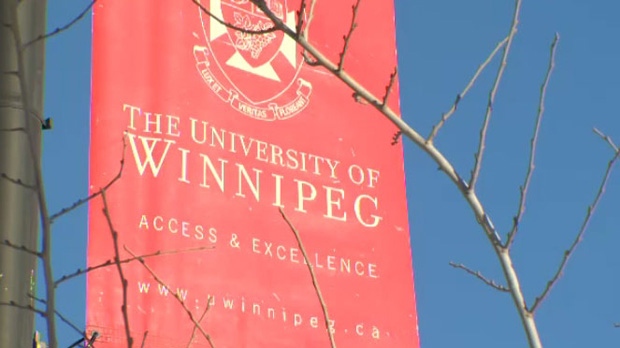New study finds both positives and shortcomings from Indigenous courses at U of W
 File image.
File image.
A new study looking at the Indigenous course requirement at the University of Winnipeg shows there is increased recognition among students about the discrimination Indigenous people faced, but it also noted some shortcomings as well.
Since 2016, the U of W has required all undergraduate students to take at least one Indigenous course.
Jeremy Siemens and Katelin Neufeld studied the affects the classes had on the students that took them.
Ninety-one students were surveyed at the beginning and end of the program and were measured in four categories: awareness of contemporary injustice, sense of benefit from unjust systems, sense of responsibility in reconciliation and support for systemic change.
Looking at the students surveys before and after taking the class, Siemens and Neufeld found "greater awareness of systemic discrimination impacting Indigenous People in Canada, and stronger agreement that non-Indigenous Canadians benefit from such systems; they also expressed stronger agreement that non-Indigenous Canadians have a personal responsibility to address injustices impacting Indigenous Peoples, as well as more support for government initiatives to address injustice."
Siemens said the classes also led some students to change their behaviour towards ignorance and stereotypes in their own social circles.
"I hope that this work can continue. The work of this kind of education in Canada, that it can be a launching pad for future research," he said. "My work looked at what happens to non-Indigenous student attitudes in one particular place, but it's important to know what the experiences of Indigenous students are, what the experience of the Indigenous professors in these classes are."
Despite the positives that came out of the program, Siemens said one negative was students thought their participation was an endpoint in reconciliation.
"They weren't necessarily aware of their ongoing biases, described this as some of change that, as I said, had reached some kind of endpoint. And we hope that this can be ongoing work, and work without an end, so that students can continue to see the value in additional courses, additional learning."
Of those surveyed, the group's mean age was 22, with half of respondents being born in Canada. The majority of the group were also women and around three-quarters were white.
CTVNews.ca Top Stories

Israel intensifies bombardment of Gaza and southern Lebanon on the eve of Oct. 7 anniversary
A new round of airstrikes hit Beirut suburbs late Sunday as Israel intensified its bombardment of northern Gaza and southern Lebanon in a widening war with Iran-allied militant groups across the region. Palestinian officials said a strike on a mosque in Gaza killed at least 19 people.
Rare cloud formations ripple the sky over Ottawa
A unique form of clouds made an appearance over the skies of Ottawa on Sunday evening.
The cooking method you need to learn to get excited about vegetables this fall, expert says
'Eat more vegetables,' doctors and dietitians say over and over. But for many people, it’s hard to do, because they aren’t excited about veggies or just don’t like them.
Hurricane Milton is growing stronger as it blows toward Florida's Tampa Bay region
People across Florida were given notice Sunday that Hurricane Milton is intensifying rapidly and will likely be a major hurricane before slamming midweek into the storm-ravaged Gulf Coast.
New Far North hospital moves closer to being built after $1.8B design, build contract awarded
Weeneebayko Area Health Authority and the Government of Ontario have awarded a $1.8 billion fixed-price contract to design, build and finance a new Far North hospital.
'Environmental racism': First Nations leaders claim cancer-causing contamination was covered up
The people of Fort Chipewyan believe the federal government knew its water was contaminated and hid the issue for years. Now the chief of the Athabasca Chipewyan First Nation is leading the call for immediate action.
Madonna's brother, Christopher Ciccone, dead at 63
Christopher Ciccone, a multihyphenate artist, dancer, designer and younger brother of Madonna, has died. He was 63.
Frequent drinking of fizzy beverages and fruit juice linked to an increased risk of stroke: research
New data raises questions about the drinks people consume and the potential risks associated with them, according to researchers at Galway University in Ireland, in partnership with Hamilton’s McMaster University.
A year into the Israel-Hamas war, students say a chill on free speech has reached college classrooms
As a junior at George Washington University, Ty Lindia meets new students every day. But with the shadow of the Israel-Hamas war hanging over the Washington, D.C., campus, where everyone has a political opinion, each new encounter is fraught.


































